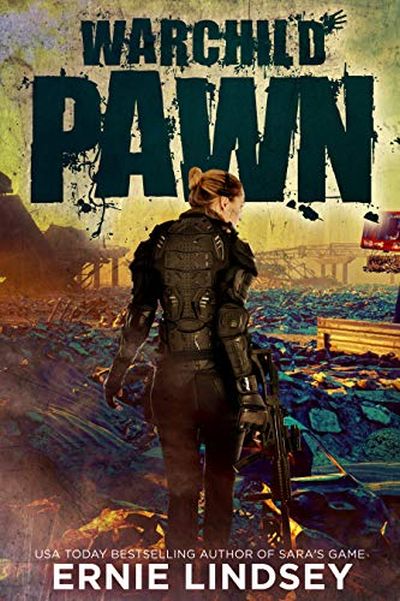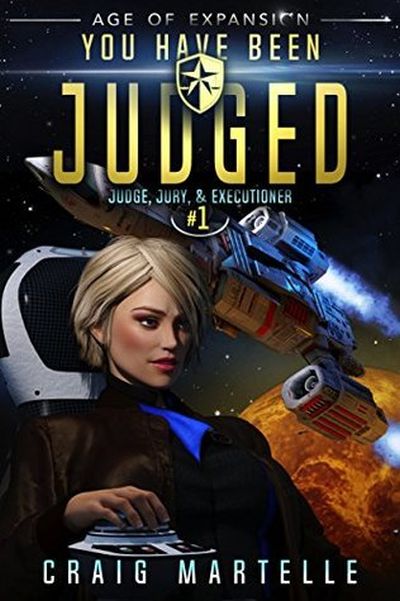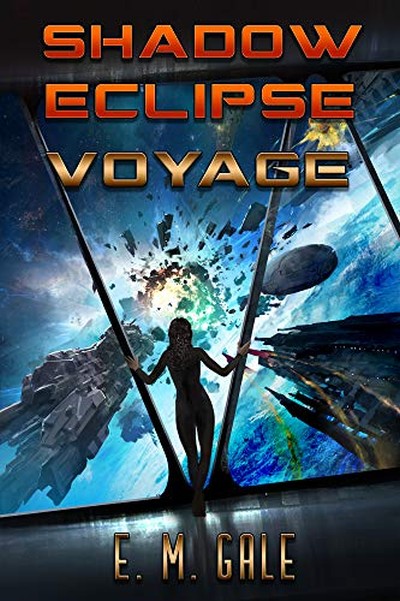★★½
“Which witch is which?”
 This showed up as a bit of a surprise. Obviously, even the title suggested that the makers were looking for a sequel to The Witch: Part 1. The Subversion. However, I had no idea whether or not it had been successful enough to merit a follow-up. Clearly the answer is yes, though I would certainly recommend you either re-watch, or at the very least read up on, the preceding entry. Even at a rather bloated 137-minute running time, it does not provide any “Previously, on The Witch…” recap. You’re entirely on your own, and after a brief prologue, you will be dropped right into things, though any connection to the previous film only becomes apparent at the very end.
This showed up as a bit of a surprise. Obviously, even the title suggested that the makers were looking for a sequel to The Witch: Part 1. The Subversion. However, I had no idea whether or not it had been successful enough to merit a follow-up. Clearly the answer is yes, though I would certainly recommend you either re-watch, or at the very least read up on, the preceding entry. Even at a rather bloated 137-minute running time, it does not provide any “Previously, on The Witch…” recap. You’re entirely on your own, and after a brief prologue, you will be dropped right into things, though any connection to the previous film only becomes apparent at the very end.
It begins with the escape of “Ark 1” (Shin) from the research facility where she has been undergoing experiments. Stumbling onto a road, she’s picked up by a car containing Kyung-hee (Park), a young woman who is in serious trouble with the gangsters also present in the car. Ark 1 handily defeats them after they get a bit too friendly, quickly earning Kyung-Hee’s gratitude. She takes Ark 1 back to live with her and her brother, Dae-gil (Sung), introducing Ark 1 to the delights of food. The gangsters are none too happy with getting their butts kicked, and regroup for another attempt. They’re not the only ones after Ark 1 either, as her former “owners” sent out an agent, Jo-hyeon (Seo), with talents of her own, to retrieve their property.
As the rather clunky sub-title implies, this is mostly about an entirely different character to the preceding movie. This feels like a bit of a cheat, as if you’d carefully studied for a pop quiz, only for it to be for another subject entirely. Instead, you get a plot which, even at the extended running time, feels rather too over-stuffed. The remarkable coincidence of Ark 1 stumbling into a car containing the very person who can help her, and that simultaneously needs her help, is just the first in quite a few moments where people happen to be in the right place at the right time. I suspect there’s also a plot thread or two more than is beneficial to overall coherence.
This is especially true at the end, where the various factions converge and have a massive battle in poorly-lit conditions. Going by what I saw earlier, this may have been the makers’ way of disguising the CGI. It’s an area with scope for improvement, especially when Ark 1 is demonstrating her remarkable super strength, by hurling people. cars, etc. around with enthusiasm. I suspect this is a victim of second movie syndrome, being the entry in a trilogy that has neither a start nor an ending. I do have to cut it some slack on that basis, and presuming the series is finished (and this was a top 10 film in Korea for 2022), I’ll still be tuning in for the finale. There’s just enough potential, even if my expectations are quire restrained.
Dir: Park Hoon-jung
Star: Shin Si-ah, Park Eun-bin, Seo Eun-soo, Sung Yoo-bin





 This SF novel takes place in the future where the human Commonwealth is engaged in a brutal space war against the militaristic Shrehari Empire – imagine Klingons on krack, perhaps. They have superior technology, but humanity’s ability to think outside the box and improvise has helped level the playing field. Siobhan Dunmoore has just survived – emphasis on “just” – a battle against the Imperial cruiser Tol Vakash of Captain Brakal, forcing him to retreat by attempting a kamikaze crash of her badly-damaged craft into his. As a “reward”, she is assigned command of the Stingray, a craft with a bad reputation. Its previous captain is now facing a Disciplinary Board, and the crew are barely even trying. It seems Dunmoore has been set up to fail, and she’ll need to overcome resistance from enemies both domestic and alien, as well as overt and covert, before she can even think about going another round with Captain Brakal.
This SF novel takes place in the future where the human Commonwealth is engaged in a brutal space war against the militaristic Shrehari Empire – imagine Klingons on krack, perhaps. They have superior technology, but humanity’s ability to think outside the box and improvise has helped level the playing field. Siobhan Dunmoore has just survived – emphasis on “just” – a battle against the Imperial cruiser Tol Vakash of Captain Brakal, forcing him to retreat by attempting a kamikaze crash of her badly-damaged craft into his. As a “reward”, she is assigned command of the Stingray, a craft with a bad reputation. Its previous captain is now facing a Disciplinary Board, and the crew are barely even trying. It seems Dunmoore has been set up to fail, and she’ll need to overcome resistance from enemies both domestic and alien, as well as overt and covert, before she can even think about going another round with Captain Brakal. This dystopian future takes place after the United States of America is no longer united, having fragmented into a group of disparate regions that exist in an uneasy piece with each other. The heroine is 14-year-old Caroline, who lives in a remote part of the Appalachians, her town loosely affiliated to the People’s Republic of Virginia. She’s a scout, and one day encounters forces from the Democratic Alliance. The population of her village who escape, head towards the state capital of Warrenville, pursued by the invading army. On the way, Caroline begins to come into startling abilities which were literally injected into her as a small child.
This dystopian future takes place after the United States of America is no longer united, having fragmented into a group of disparate regions that exist in an uneasy piece with each other. The heroine is 14-year-old Caroline, who lives in a remote part of the Appalachians, her town loosely affiliated to the People’s Republic of Virginia. She’s a scout, and one day encounters forces from the Democratic Alliance. The population of her village who escape, head towards the state capital of Warrenville, pursued by the invading army. On the way, Caroline begins to come into startling abilities which were literally injected into her as a small child. Roughly ten minutes into this, it was clear I’d made a terrible mistake. I’ve seen my share of wretched creature features in my time, and this is down near the bottom of the barrel. It does have an interesting, if totally ludicrous idea. Five women are invited to a remote hotel, to take part in a game-show, competing for a prize of £100,000. Among them is struggling single mother Sienna (Wunna) who, unable to find a baby-sitter, takes her two kids with her. As the cover ever so subtly suggests, the game has carnivorous dinosaurs roaming the hotel and grounds, and “winning” simply means not getting eaten. Naturally, Sienna’s two kids also disobey Mum’s instructions not to leave the room.
Roughly ten minutes into this, it was clear I’d made a terrible mistake. I’ve seen my share of wretched creature features in my time, and this is down near the bottom of the barrel. It does have an interesting, if totally ludicrous idea. Five women are invited to a remote hotel, to take part in a game-show, competing for a prize of £100,000. Among them is struggling single mother Sienna (Wunna) who, unable to find a baby-sitter, takes her two kids with her. As the cover ever so subtly suggests, the game has carnivorous dinosaurs roaming the hotel and grounds, and “winning” simply means not getting eaten. Naturally, Sienna’s two kids also disobey Mum’s instructions not to leave the room. This is another entry in the sprawling Kurtherian Gambit universe, which must have well over a hundred books in it, by a slew of different authors. I’m gradually coming to a couple of conclusions: a) it’s a very loosely-tied series, and b) the quality varies. When you give your book a title like this, evoking the spirit of Judge Dredd, you are setting certain expectations. Unfortunately, this is a book which fails to meet them, with a heroine who never achieves the level of intensity necessary to live up to the series title: Judge, Jury, Executioner. It has reached 16 volumes, which suggests either there’s a market for it, or the author has too much time on their hands. No prizes for guessing my opinion.
This is another entry in the sprawling Kurtherian Gambit universe, which must have well over a hundred books in it, by a slew of different authors. I’m gradually coming to a couple of conclusions: a) it’s a very loosely-tied series, and b) the quality varies. When you give your book a title like this, evoking the spirit of Judge Dredd, you are setting certain expectations. Unfortunately, this is a book which fails to meet them, with a heroine who never achieves the level of intensity necessary to live up to the series title: Judge, Jury, Executioner. It has reached 16 volumes, which suggests either there’s a market for it, or the author has too much time on their hands. No prizes for guessing my opinion. A woman wakes up in a bedroom, with no knowledge of where she is, how she got there, or even who she is. Gradually, she (and the reader) find out the answers to at least some of those questions. Her name is Diya, and the bedroom is on Luna, which has now been settled and colonised by humanity. That’s the simple part. The rest? It’s complex. But is summary, she is a cyborg, created as part of a black budget research project by the NeuroDyne Corporation (Earth’s biggest employer – they basically own Iceland). An employee who had moral qualms about the scheme, smuggled Diya off-planet, stashing her with his blind sister Terry and a robot caregiver. But NeuroDyne aren’t letting their investment just walk away.
A woman wakes up in a bedroom, with no knowledge of where she is, how she got there, or even who she is. Gradually, she (and the reader) find out the answers to at least some of those questions. Her name is Diya, and the bedroom is on Luna, which has now been settled and colonised by humanity. That’s the simple part. The rest? It’s complex. But is summary, she is a cyborg, created as part of a black budget research project by the NeuroDyne Corporation (Earth’s biggest employer – they basically own Iceland). An employee who had moral qualms about the scheme, smuggled Diya off-planet, stashing her with his blind sister Terry and a robot caregiver. But NeuroDyne aren’t letting their investment just walk away.  This is likely an admirable effort in terms of its budget. The IMDb estimates it costs $100,000 and it looks like Price squeezed every cent – or, since it’s British, penny – out of that. To give you some idea, also per the IMDb, “Sections of the film were shot during the Covid-19 United Kingdom lockdown with just the occupants of the director’s flat. The director’s girlfriend doubled for any actors and WhatsApp voice notes from cast members were used for any extra lines of dialogue.” This is the kind of thing that can only be respected. Which is why I feel a little bad about having to give this an underwhelming review, because… truth be told, it’s kinda boring.
This is likely an admirable effort in terms of its budget. The IMDb estimates it costs $100,000 and it looks like Price squeezed every cent – or, since it’s British, penny – out of that. To give you some idea, also per the IMDb, “Sections of the film were shot during the Covid-19 United Kingdom lockdown with just the occupants of the director’s flat. The director’s girlfriend doubled for any actors and WhatsApp voice notes from cast members were used for any extra lines of dialogue.” This is the kind of thing that can only be respected. Which is why I feel a little bad about having to give this an underwhelming review, because… truth be told, it’s kinda boring.  This is set around fifty years after “the Provocation”, a series of unsolved mass abductions which led to Capernica becoming a strictly-controlled hierarchical society of Uppers, Lowers and the Military. Orphan Jaclyn Holloway is a Lower, living in near poverty in the seaside town known as Settlement 56. The only way out for a Lower is to pass the stringent test which allows entry into the Military. On graduating from the local school,
This is set around fifty years after “the Provocation”, a series of unsolved mass abductions which led to Capernica becoming a strictly-controlled hierarchical society of Uppers, Lowers and the Military. Orphan Jaclyn Holloway is a Lower, living in near poverty in the seaside town known as Settlement 56. The only way out for a Lower is to pass the stringent test which allows entry into the Military. On graduating from the local school,  While a quick read, at 205 pages, after slogging through a couple of what can only be described as “chonkers”, I really didn’t mind. It’s briskly-paced, hits the ground running and largely doesn’t stop thereafter. I have some concerns about where things might go in subsequent volumes, so will probably stop here, just to be safe. However, I enjoyed what I read well enough.
While a quick read, at 205 pages, after slogging through a couple of what can only be described as “chonkers”, I really didn’t mind. It’s briskly-paced, hits the ground running and largely doesn’t stop thereafter. I have some concerns about where things might go in subsequent volumes, so will probably stop here, just to be safe. However, I enjoyed what I read well enough. After a brisk and entertaining start, this gets increasingly bogged-down in its own universe as it goes on. And, boy, does it go
After a brisk and entertaining start, this gets increasingly bogged-down in its own universe as it goes on. And, boy, does it go